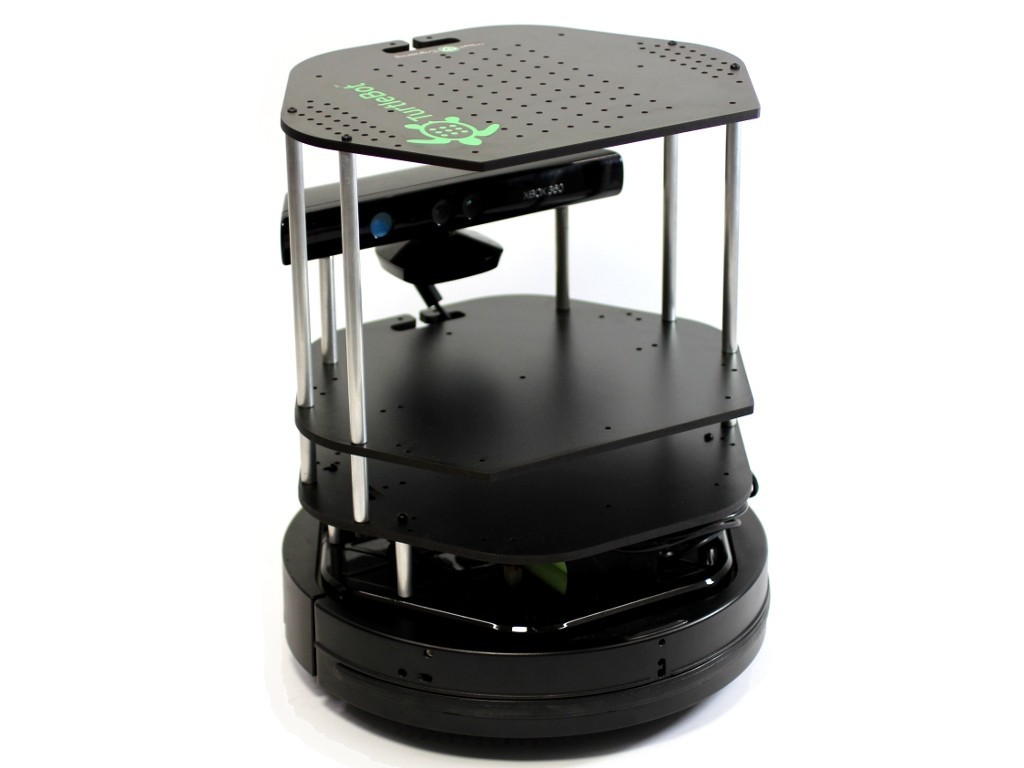The law kept tripping up Sunset Park’s robot maker.
I Heart Engineering, the manufacturers of open source turtlebots, shut down in May of this year, about one year after the company merged with Sameer Parekh Brenn’s Falkor Industries, a startup aiming to deploy autonomous drones.
We spoke to Brenn via phone from Boulder where he now lives, and where he just launched his new company, Mimetic Markets, a platform for businesses to use to set up Bitcoin exchanges.
Brenn explains that I Heart Engineering was profitable up to a point, but a debt on the company’s books made it unfeasible to continue at the more modest scale it had pivoted toward.
It’s a story of how a decision outside a company’s core business can ultimately take an otherwise working operation down.
###
When Brenn merged his company with I Heart Engineering, he did so because he realized that he had reached the limits of his technical abilities in making the unmanned aerial vehicles he envisioned.
“The talent pool for engineering in New York is quite small,” he said, referring to his need for people with skills in mechanical and electrical engineering. However, he found the skills he needed in William Morris, the founder of I Heart Engineering.
Here’s a look at the Falkor product, which was never released commercially.
Most of the coverage, like the above, treated the quadcopters as a sort of pet for the home. Brenn explained that his true vision, however, was using them as autonomous photographers for extreme sports.
Brenn wanted robots that would be able to follow an athlete down a mountain, for example, take lots of quality photos and maintain a safe distance. However, he told us, “The regulatory environment in the U.S. will not permit autonomous flight any time soon.” That was the first legal problem.
They never lost sight of this idea, but with Morris, the next big step was to work on autonomous robotics to run the home.
The owners of the company had realized that much of home automation was heading in a Big Brother-type direction, where it wouldn’t be clear who precisely owned the devices that a consumer purchased. Would your refrigerator, for example, start alerting your health insurer if you bought too many unhealthy snacks?
So they wanted to work on home automation that truly put the user in control, Brenn said, because they believed the home would be the next big phase of the robotics revolution.
Then William Morris left the company in September 2013 (announced here in October), which meant that it no longer had the in-house technical capacity to execute the home automation vision, which could have potentially led to dramatic growth.
###
Brenn said this would have been fine. The TurtleBot business was profitable, “sort of,” he explained.
He began work on Mimetic Markets in January of this year and at that time it looked like the company was making enough money to support the company’s operations. So the theory was he could spend a little time on it and let it basically run itself.
The main trouble was their other legal issue: a too expensive merger.
The company had a hefty legal bill from a law firm that had executed the merger and acquisition with Falkor. The cost of that legal bill was higher than the value of the company, Brenn said. The law firm had persuaded I Heart Engineering to accept its pricey services on the grounds that it would permit the company to defer payment for a year. As Brenn put it, “The company was in a position of wanting to move forward and not really thinking carefully about the future.”
The TurtleBot business alone was never going to be huge, so any profit the company made was going to go toward servicing its debt to this law firm.
Brenn had already been contemplating a move with his new wife to Boulder. Once they decided to go through with moving, the prospects for the company looked too poor to keep it going. So they shut I Heart Engineering down rather than let all the returns go to a legal bill.
The company’s operations director purchased its remaining stock and is in the process of launching a new Brooklyn-based turtlebot company, Dabit Industries.
Turtlebots are run by an open-source operating system for robots, integrated with a Microsoft Kinect as a set of “eyes.”
###
Now, with Mimetic Markets, Brenn is optimistic about the power of Bitcoin to deliver social good.
“Bitcoin’s existence itself could motivate central banks not to do stupid stuff,” he said, because Bitcoin would make it possible for people to move their wealth across borders if banks started aggressively devaluing currency.
Before you go...
Please consider supporting Technical.ly to keep our independent journalism strong. Unlike most business-focused media outlets, we don’t have a paywall. Instead, we count on your personal and organizational support.
Join our growing Slack community
Join 5,000 tech professionals and entrepreneurs in our community Slack today!
